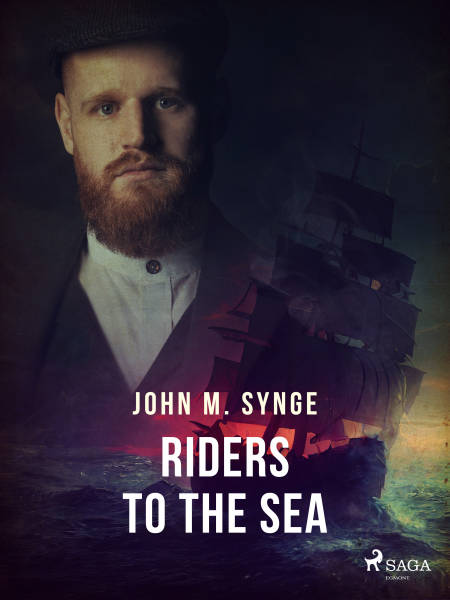
- Retrait gratuit dans votre magasin Club
- 7.000.000 titres dans notre catalogue
- Payer en toute sécurité
- Toujours un magasin près de chez vous
- Retrait gratuit dans votre magasin Club
- 7.000.0000 titres dans notre catalogue
- Payer en toute sécurité
- Toujours un magasin près de chez vous
Description
‘Riders to the Sea’ (1904), is a classic one-act tragedy by famed Irish playwright J.M. Synge. Maurya, a widower of the Aran Islands who has lost her husband and five sons to the sea, is alarmed when she learns that her brother’s body has also washed up on the beaches of Donegal.
Convinced that tragedy will befall her still, Maurya pleads with her only living son, Bartley, to not brave the tempestuous waters to journey to County Galway for business. When he does not listen, Maurya must only wait to see if her predictions will come true: that by night’s fall she will have no sons left...
A heart-breaking drama that captures the beautiful lyricism of the Irish, ‘Riders to the Sea’ conveys colossal emotion in such a minute play. With riveting dialogue throughout, Synge explores the hopelessness of humanity in the face of nature.
The futility of human life in ‘Riders to the Sea’ is echoed in other classic Irish plays like Samuel Beckett’s ‘Waiting for Godot’ (1953). With the timeless universality of its message, ‘Riders of the Sea’ is sure to find a home with modern audiences looking to experience one of the most profound tragedies of the 20th century.
Edmund John Millington Synge (1871 – 1909) was an Irish poet, playwright, and defining figure of the Irish Literary Revival. Born in County Dublin to upper-middle-class Protestants, Synge suffered from Hodgkin’s disease which led to his home-schooling.
Soon after graduating from Trinity College Dublin, Synge became a renowned poet and playwright, but his success was short-lived as he passed away from cancer at 37. He is best remembered for his play ‘The Playboy of the Western World’, an incredibly controversial work at the time of its publication and performance.
Regarded by Yeats as ‘the greatest dramatic genius of Ireland’, Synge has held a lasting legacy, being a key influence for acclaimed Irish playwright Samuel Beckett and the subject of Joseph O’Connor’s novel ‘Ghost Light’ (2010).
Convinced that tragedy will befall her still, Maurya pleads with her only living son, Bartley, to not brave the tempestuous waters to journey to County Galway for business. When he does not listen, Maurya must only wait to see if her predictions will come true: that by night’s fall she will have no sons left...
A heart-breaking drama that captures the beautiful lyricism of the Irish, ‘Riders to the Sea’ conveys colossal emotion in such a minute play. With riveting dialogue throughout, Synge explores the hopelessness of humanity in the face of nature.
The futility of human life in ‘Riders to the Sea’ is echoed in other classic Irish plays like Samuel Beckett’s ‘Waiting for Godot’ (1953). With the timeless universality of its message, ‘Riders of the Sea’ is sure to find a home with modern audiences looking to experience one of the most profound tragedies of the 20th century.
Edmund John Millington Synge (1871 – 1909) was an Irish poet, playwright, and defining figure of the Irish Literary Revival. Born in County Dublin to upper-middle-class Protestants, Synge suffered from Hodgkin’s disease which led to his home-schooling.
Soon after graduating from Trinity College Dublin, Synge became a renowned poet and playwright, but his success was short-lived as he passed away from cancer at 37. He is best remembered for his play ‘The Playboy of the Western World’, an incredibly controversial work at the time of its publication and performance.
Regarded by Yeats as ‘the greatest dramatic genius of Ireland’, Synge has held a lasting legacy, being a key influence for acclaimed Irish playwright Samuel Beckett and the subject of Joseph O’Connor’s novel ‘Ghost Light’ (2010).
Spécifications
Parties prenantes
- Auteur(s) :
- Editeur:
Contenu
- Nombre de pages :
- 26
- Langue:
- Anglais
Caractéristiques
- EAN:
- 9788728187838
- Date de parution :
- 13-12-22
- Format:
- Ebook
- Protection digitale:
- Digital watermarking
- Format numérique:
- ePub

Les avis
Nous publions uniquement les avis qui respectent les conditions requises. Consultez nos conditions pour les avis.






